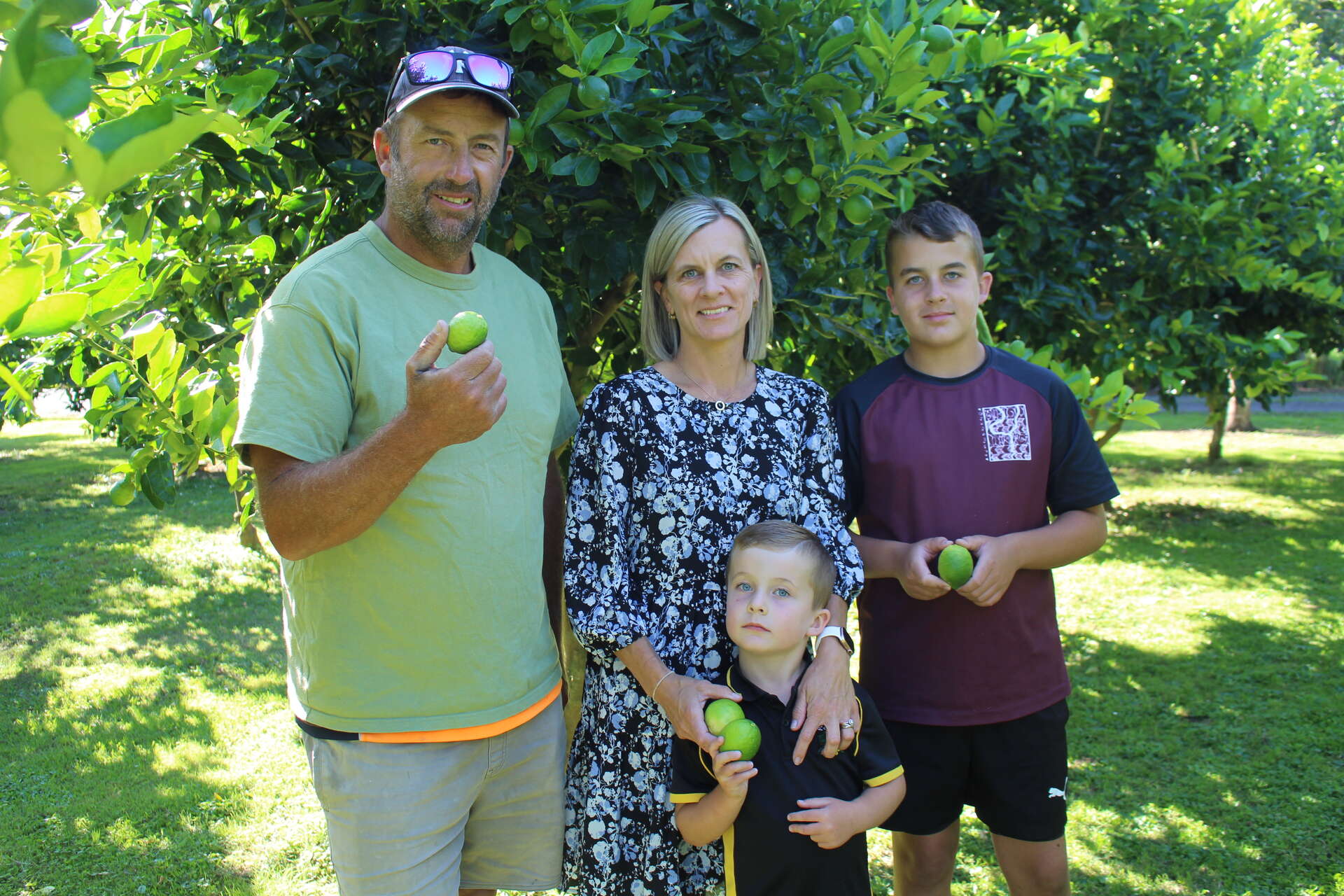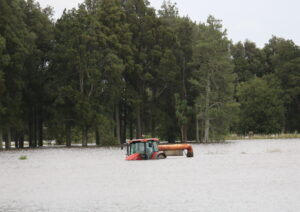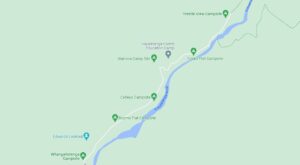A zest for a lifestyle change led Wade and Jane Andrews to purchase a 2.5 acre lime orchard on Hauraki Rd in 2016.
The couple now produce up to two tonnes of the citrus fruit per year and Wade told The Profile the business was named after their now six-year-old son.

“We had been in Thames but we wanted a bit of land with a growing family of three boys,” he said.
“When we actually purchased the property,my wife was pregnant and we had our son in January 2017. The property wasn’t named prior.
“[They] had it set up as a functioning orchard but they hadn’t named it as such, so when Leo our son was born… we decided to start up a partnership company and we named it Leo’s Limes.”
Wade said Leo’s Limes produced around 20 to 30kg of the citrus fruit per tree per year.
“We’re now functioning at about 230 lime trees, and we predominantly supply to our local markets… we have some good local consumers which we gather through social media, word of mouth and through friends,” he said.
“We were actually lucky this year to have some earlier fruit so we could supply from early February to just before the end of the year in November.
“Once a lime starts to yellow as it ripens and gets a little bit older, it automatically becomes a B grade lime, but the better limes are the ones that are a bit older, they’re juicier, and they’ve got more taste.”
Wade said the orchard could soon be after a full-time employee to help process the limes after recently replacing an old row of trees with a processing shed.
Leo’s Limes focused on the lime appeal, he said.
“When we’re processing and packaging we’re picking the best produce and that’s part of it, we’re not supplying substandard fruit,” he said.
“Keeping on top of the trees and giving them a prune, keeping the trees off the ground so that limits the amount of bugs that can access the trees, and a bit of luck at the end of the day.
“We’ve been lucky enough to have this land where the limes have seemed to thrive, we haven’t for the last three years sprayed the trees so they’re more or less organic.”
Wade said Leo’s Limes had not been affected by the recent cyclones. “From the original people that planted the limes they did a very good job in terms of forming the water tables so the limes aren’t sitting in low lying areas,” he said.
“[The water is] always only a metre max below the ground because of the marine clay that’s down below, it holds the moisture.
“At the moment we are getting extreme weather patterns – this summer is wet whereas last summer we had one of the driest summers we’ve ever had, but it hasn’t affected the limes too much… and we haven’t lost any trees.”




